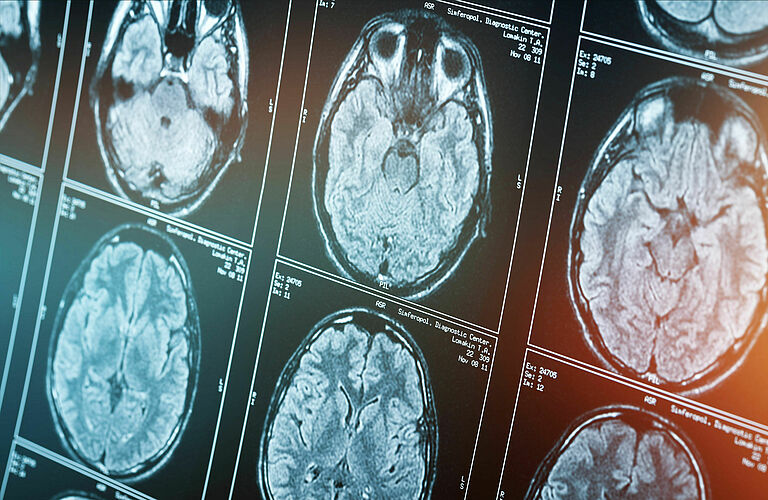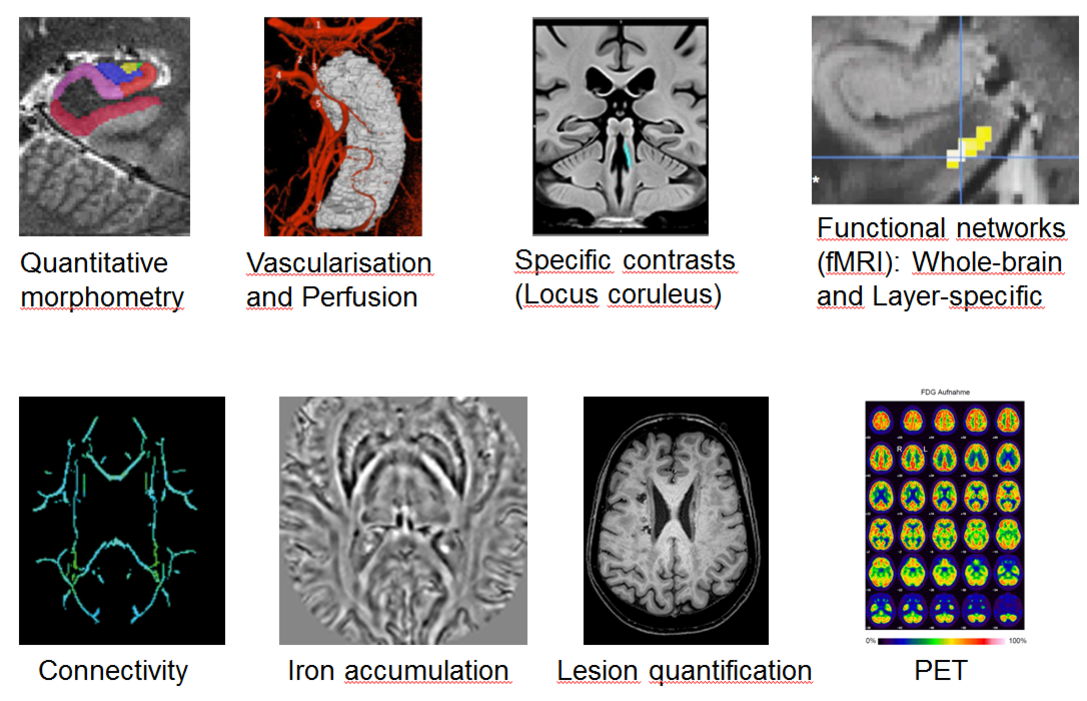National Neuroimaging Network
Brain scans, as provided by magnetic resonance imaging (MRI) or positron emission tomography (PET), allow to study and quantify the structure, function of the human brain and the pathological changes that occur in neurodegenerative diseases. Imaging techniques are therefore indispensable tools for basic and clinical research. The German Center for Neurodegenerative Diseases (DZNE) focusses its nationwide expertise in this field under the umbrella of the National Neuroimaging Network. The network is coordinated by the site speaker of Magdeburg: Prof. Emrah Düzel. The coordination group also includes Prof. Oliver Speck (University of Magdeburg) and Prof. Tony Stöcker (DZNE Bonn).
Nationwide Infrastructure of Brain Scanners
Magnetic resonance imaging is pioneering this process. The clinical study centers, in which subjects are examined by MRI are distributed throughout Germany. To harmonize the imaging across all different sites, standard operating procedures and quality checks for MRI have been developed. This allows to compare directly imaging data acquired by brain scanners at different sites. In addition, this standardization enables a continuous innovation of MR imaging. Hence newly developed imaging methods can be made seamlessly available nationwide for clinical research in the National Neuroimaging Network. At present, more than 1000 participants are involved in our innovative studies on a nationwide scale.
All DZNE sites that conduct clinical studies in collaboration with local university hospitals (Berlin, Bonn, Dresden, Goettingen, Magdeburg, Munich, Rostock/Greifswald and Tuebingen) are part of the National Neuroimaging Network. The DZNE is operating its own scanners at some of these sites and benefiting from devices run by partner institutions.
In addition to conventional MRI scanners, ultra-high field scanners (7-Tesla) are available in Bonn and Magdeburg. Less than ten of theses scanners, which are certified for human studies, exist in Germany. Such high-field scanners reveal even more brain details than conventional MRI machines. Furthermore, a brain scanner that combines MRI and PET methodology operates in Magdeburg.
Objective: Improving diagnostics and therapies
The aim of the National Neuroimaging Network is to pave the way for developing better diagnostics and facilitate research towards new therapies. With its various sites and its nationwide partners, particularly at university hospitals, the network presents an ideal platform for this.



